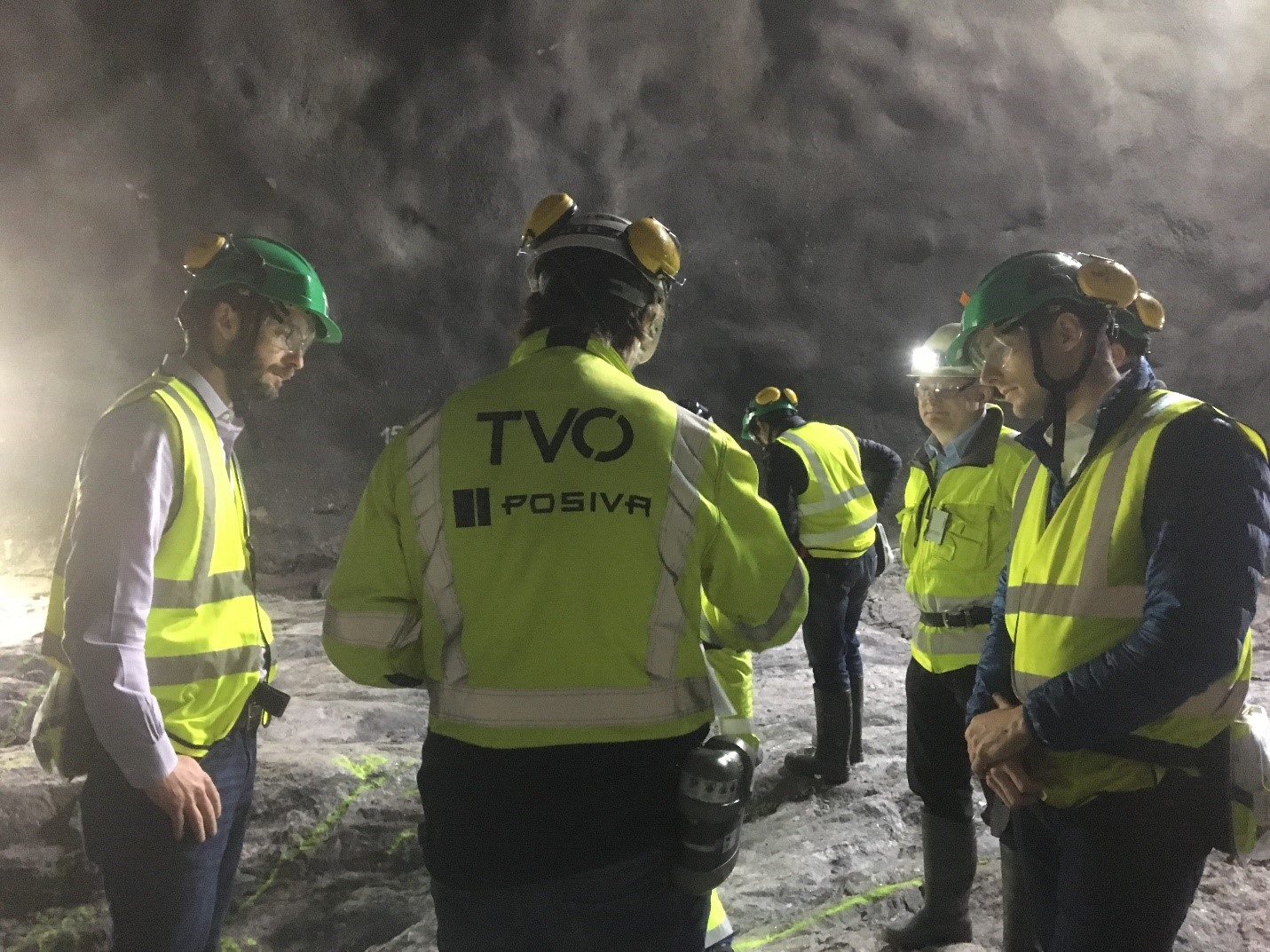Three Nuclear Waste Management Organization (NWMO) engineers crossed the Atlantic and Arctic oceans in May in a journey to Finland, where the world’s first deep geological repository for used nuclear fuel is under construction.
Posiva is the Finnish counterpart to the NWMO – it too is responsible for the safe, long-term management of used nuclear fuel in a manner that protects people and the environment. And it is doing so by building a deep geological repository on Olkiluoto Island, which is about 275 kilometres northwest of Helsinki.
The projects vary in design and engineering, but both organizations can learn a lot from each other, especially because the Posiva project is already building the repository at its ONKALO site on Olkiluoto Island, where three nuclear power plant units are also located. That organization is also in the midst of a large-scale research project – Full-Scale In-Situ System Test (FISST) – that will inform nuclear waste management efforts around the world.
“The fantastic part about being involved in the FISST project is that Posiva is at the most advanced stage of development of a geological repository for used nuclear fuel of any organization since it received a construction licence for the project in November 2015,” said Chip Lee, NWMO Manager of Mining and Repository Engineering. He had just returned from a workshop that included a tour of the ONKALO site and a run-through of what they have learned from FISST so far. “As this test is the first of its kind in the world, ONKALO is the only location on the planet we could have gone to witness and learn from this type of trial.”
Mr. Lee was joined by NWMO Director of Engineering Chris Boyle, Safety Assessment Models Section Manager Mark Gobien, and three experts from the United Kingdom’s Radioactive Waste Management, which is also involved in the FISST experiment. It was the third of recent visits and workshops as part of a partnership between Posiva and the NWMO.
Mr. Gobien said participating in the FISST experiment “…provides the NWMO with a lot of good insights into what sorts of challenges are faced, and what sorts of technologies are working or not working in the underground environment. It allows us to benefit from the experience that they have had (in Finland) when they have actually tried constructing something of this scale.”
Eventually, years from now when we have selected a site and are in the licensing phase, the NWMO expects to conduct a similar emplacement trial, Mr. Gobien explained. It is just one of the many ways Canada’s plan and similar efforts around the world will gain invaluable knowledge from the work being done by Posiva.
“Certainly, the NWMO could learn from the practices, processes and procedures that they have. They are moving quite quickly,” he said. “The amount of responsibility that they are taking on as first in the world is immense, and it is really clear they want this project to be successful not just for themselves, but for everybody.”

